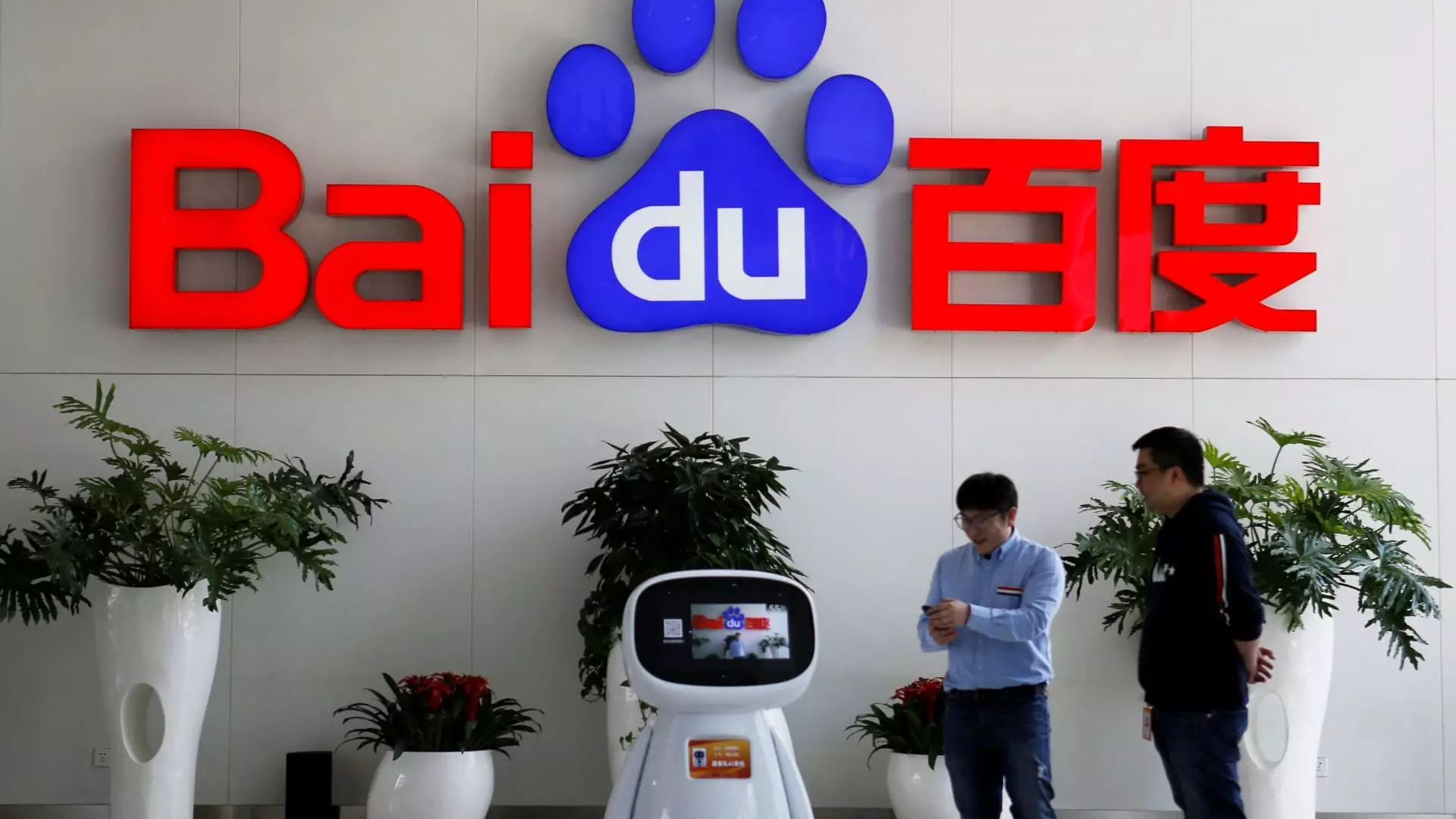As the race for artificial intelligence supremacy heats up, Baidu, the tech behemoth of China, is poised to unveil its next-generation AI model, known as Ernie 5.0. Slated for a release in the latter half of the year, this new model follows a series of advancements within the AI sphere. Information leakages indicate that Ernie 5.0 is classified as a “foundation model,” designed to bridge the gap between various modes of content—encompassing text, video, images, and audio formats. What sets this iteration apart from its predecessors is its promise of significantly enhanced multimodal capabilities, a feature that will enable it to process and transmute data across different categories seamlessly.
Such developments not only demonstrate Baidu’s commitment to staying at the forefront of AI technology but also indicate a response to competitive pressures from emerging companies like DeepSeek. The latter, which burst onto the scene with a groundbreaking open-source AI model, has already begun to shake the foundations of the tech market, prompting concerns for traditional players. The introduction of such robust models has vast implications, as they promise competitive pricing and superior reasoning capabilities.
The chief executive of Baidu, Robin Li, recently remarked that the inference costs associated with foundation models could drop by an impressive 90% within a year. This paradigm shift in cost efficiency could lead to enhanced productivity across the board, reshaping the landscape of creative and analytical tasks. According to Li, innovation inherently ties back to these cost reductions as they facilitate broader access to sophisticated technologies, fostering not just efficiency but also economic growth.
Such austerity in operational costs, when coupled with AI-driven tools, signals a transformative time in industries ranging from financial services to content creation. Businesses that harness AI effectively can expect to amplify their capabilities exponentially, allowing for more nuanced engagement and operational precision. Despite these advancements, Baidu’s journey has not been without pitfalls. The early excitement surrounding its initial chatbot offering, Ernie, has waned amidst the relentless advancements of competing products launched by well-established companies and startups alike.
Notably, while Baidu’s stock has shown a modest increase of 6% year-to-date, rivals such as Alibaba have surged by about 33%. This disparity highlights the challenges Baidu faces in gaining traction among consumers and investors. Tencent has also seen moderate growth of approximately 4%, while ByteDance remains unlisted but is actively innovating within the space.
Baidu has placed its bets on further integrating generative AI features across its platforms, catering to both consumer demands and enterprise needs. In the past year, for example, its Wenku platform has attracted a staggering 40 million paying users—a clear indicator of potential market penetration. Such adoption rates are fueled by innovative features, like AI-powered document generation based on user input, which Baidu began rolling out at the start of the current year.
As of October 2023, the existing iteration of Ernie stands at Generation 4, with a turbo version released shortly thereafter. However, despite the arrival of these updates, Baidu has not officially confirmed the release of the 5.0 model, leading to speculation and anticipation within the tech community. The landscape is further complicated by the constant evolution of rivals like OpenAI, which released GPT-4o in May 2024, an iteration that promises to keep pace with user expectations.
In closing, the rapidly evolving AI sector underscores a time of both opportunity and challenge. Baidu’s forthcoming Ernie 5.0 symbolizes potential advancements in AI technology but also highlights the constant need for adaptability in a world where new entrants like DeepSeek can quickly disrupt established players. As businesses increasingly rely on such technologies for operational efficiency, the next few years will undoubtedly be pivotal in determining who emerges as the ultimate leader in the global AI race.


Leave a Reply